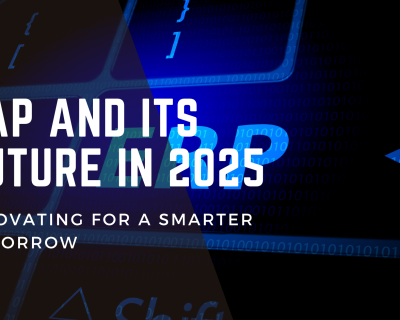The shift from SAP ECC (ERP Central Component) to SAP S/4HANA is one of the most significant technological changes for businesses today. With SAP’s HANA in-memory database providing real-time data processing and advanced analytics, companies are witnessing major improvements in performance and efficiency. However, the migration process can be complex, and expert guidance is essential—this is where consultants play a crucial role.
Why Migrate to S/4HANA?
SAP S/4HANA offers businesses substantial benefits, with 70% faster transactions and real-time analytics that improve decision-making. This move from ECC is driven by the need for greater agility, simplified IT landscapes, and access to new technologies. According to SAP, over 20,000 customers have already adopted S/4HANA, showing its growing importance in the enterprise software ecosystem.
The Consultant’s Role in Migration
Consultants are instrumental in making the migration process smooth. They begin by assessing the current system and identifying areas of improvement. From there, they create a tailored migration roadmap, choosing the right approach for the business—whether it’s a greenfield implementation (starting fresh), system conversion (upgrading the existing system), or a selective data transition (migrating specific parts of the system).
Customization and Integration
One of the most crucial aspects of the migration is ensuring that business processes and third-party integrations are adapted to work with S/4HANA. Consultants handle the customization of the system, ensuring that it meets the unique needs of the business. This is a critical step, as S/4HANA’s simplified architecture can differ significantly from the more traditional ECC system.
Data Migration and Cleansing
Data migration is often seen as one of the most challenging parts of the transition. According to SAP, 60% of ECC migrations encounter data-related issues. Consultants ensure that data is cleansed, validated, and migrated smoothly, reducing the risk of errors and ensuring a clean start in the new system.
Training and Change Management
S/4HANA’s user interface (UI) is modernized with SAP Fiori, making it more intuitive than ECC’s older interface. Despite this, there is still a learning curve for employees. Consultants are responsible for providing training and managing the change process, ensuring that employees are comfortable with the new system. This involves everything from hands-on sessions to ongoing support, helping employees maximize the system’s potential.
How Consultants Benefit from the Migration
The migration to SAP S/4HANA is not only beneficial for businesses but also for consultants. With S/4HANA adoption growing rapidly, consultants who gain experience with the system significantly enhance their career prospects. They can earn 20-30% higher salaries than those working with older versions of SAP. Furthermore, industry demand for S/4HANA consultants has skyrocketed, with positions for these specialists increasing by 40% annually.
Skills Enhancement
Consultants gain exposure to cutting-edge technologies such as AI, machine learning, and advanced analytics, which are built into S/4HANA. This exposure makes consultants more valuable, as they’re able to help businesses not only migrate but also innovate and automate processes using these advanced capabilities.
Broader Career Opportunities
With more companies migrating to SAP S/4HANA, the demand for skilled consultants has never been higher. According to SAP, 80% of organizations plan to move to S/4HANA within the next five years, meaning there’s a vast pool of opportunities for consultants to tap into. This growing market ensures that consultants who specialize in S/4HANA are poised for long-term career success.
The Impact on Businesses
The migration to SAP S/4HANA brings numerous advantages for businesses, many of which are facilitated by consultants. On average, businesses can expect 25-30% savings in IT costs due to the simplified architecture of S/4HANA. The real-time data processing enabled by HANA leads to faster decision-making and more efficient operations. Moreover, the ability to leverage AI and automation helps organizations improve productivity and innovation.
Sustainability and Innovation
SAP’s focus on sustainability is integrated into S/4HANA, allowing businesses to track their carbon footprint and align with global sustainability goals. This feature has become increasingly important, as more organizations prioritize environmental responsibility in their business models.
A Consultant’s Legacy
The role of consultants in the ECC to S/4HANA migration is more than just technical. Consultants help shape the future of organizations by guiding them through a process that modernizes their operations, unlocks real-time insights, and integrates advanced technologies. For consultants, this transition is an opportunity to grow professionally, stay ahead in a rapidly changing market, and make a lasting impact on the organizations they serve.
As SAP S/4HANA continues to gain traction, consultants will remain at the forefront of this digital transformation, driving businesses toward a smarter, more efficient future.







